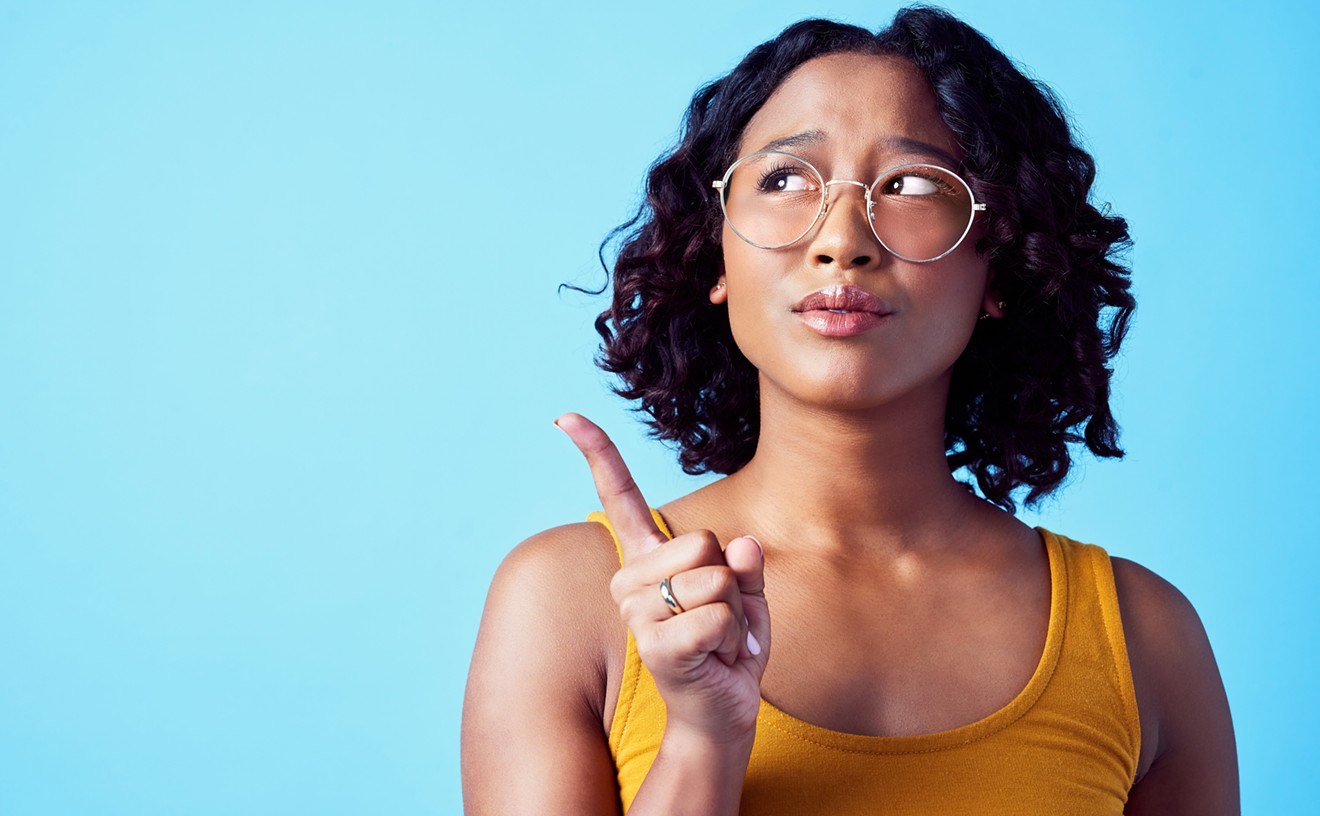As Texas cities go, ours is relatively gay-friendly. Dallas is one of only five cities in the state to have anti-discrimination ordinances in place for lesbian, gay, bisexual, and transgender people, and Mayor Mike Rawlings has openly endorsed same-sex marriage. And, of course, the thriving "gayborhood" in the Oak Lawn area is usually packed full of people who feel safe enough to express their sexual and gender identities.
For Meg Hargis and Daniel Villareal, two of the activists behind Queerbomb Dallas, a few gay bars and a statue at the intersection of Oak Lawn and Cedar Springs aren't enough to represent the diverse and vibrant queer community that makes its home here. Queerbomb Dallas is relatively new to the Dallas gay community, but in the short time they've been here, they've made us all take a hard look at the aspects of our culture that seem to be leaving some Dallas queers behind.
In terms of gay culture in Dallas, on face, it looks like we have a lot. Ask anyone where the "gayborhood" in Dallas is, and they'll point you toward the intersection of Cedar Springs and Oak Lawn, where "The Strip" is located. Here, you'll find almost all of the city's sprawling, multi-level gay bars and clubs, alongside LGBT-oriented businesses. Mostly, though, you'll just find bars, and a lot of people drinking in them.
"At first, being there is great. There's drinks and you're all liberated and stuff, but after a while, I just thought that this place was really goddamn boring," says Villareal, an activist and journalist based in Dallas. "If you don't want to eat pasta, buy underwear, or get wasted, there's nothing for you on The Strip." Hargis points out that the entanglement of gay culture and alcohol is especially problematic when you consider that queer people are disproportionately susceptible to issues with substance abuse.
Even at the city's largest celebration of gay culture, the focus is largely on alcohol. "Now it's all about beer," says Hargis. "The Heineken logo on the banners for this year's Pride is almost as big as the name of the parade." Held every year in September, the Alan Ross Freedom Parade, sponsored by the Dallas Tavern Guild, is is always packed to the gills with thousands of people and consistently lauded as one of the best pride celebrations in the south.
But it isn't the kind of pride parade that much space for activism, as Queerbomb Dallas charges. The Tavern Guild, as you may have guessed, is a group of gay bar owners that Queerbomb Dallas charges as being far too focused on profit. "The first half of the parade is basically a commercial for car insurance companies, banks, and beer," laments Hargis. "The queer groups don't even start marching until the parade is halfway over," adds Villareal. As a result, the identities of queer people who don't fit a mold that is acceptable to corporate sponsors and money-driven bar owners are often erased.
As the slapdash group of loud and proud queers made their procession through Deep Ellum in the inaugural Queerbomb Dallas alternative pride parade this summer, they may have also been permanently changing the face of the Dallas gay community. "The way the queer community is presented in Dallas is very specific," explains Hargis. "There's such a focus on being "a good queer," and a good queer is thin, white, specifically homosexual, and not poor." "If the image that you see in media of the gay community is a muscular white man in a Human Rights Campaign speedo with Absolut Vodka dripping down his body, the Queerbomb image is a transgender person of color," says Villareal.
Queerbomb believes that the presence of transgender, people of color, bisexual, and nonbinary people has been woefully underplayed in the Dallas community, and they hope to begin organizing in a way that is inclusive of voices that have been traditionally ignored in the local queer community. More than that, they want to help those voices build a space for positive activism.
Unlike Queerbomb Austin, which only hosts its pride parade in the summer and a few satellite events, Queerbomb Dallas hopes to keep organizing their community year-round. The group has already started hosting weekly reading groups at the Cafe Brazil on Cedar Springs, where they discuss queer literature, and they host monthly organizing meetings.
"Queer people are doing interesting things in Dallas," says Villareal, "but none of them get the press that Pride does. The volume is turned down so low that their voices are barely audible." Queerbomb is fervently organizing events for the rest of the year, including a picnic for people to attend instead of the Alan Ross Freedom Parade, and a top-secret event they'll be hosting in October.
In the meantime, they're working on developing food assistance programs for people in need, and hosting town halls to gather input from the community on what their next steps should be. Beyond that, they hope to build a supportive community that doesn't need alcohol to be empowered and endures long after the beads are thrown, the crowds have cleared, and the parade is over.










